- Home
- Christie Ridgway
An Offer He Can't Refuse Page 6
An Offer He Can't Refuse Read online
Page 6
Which was whisked out of her reach as the drinks were delivered. In record time, Missy drank down two Cosmopolitans, then used a napkin to pat her overpuffed lips. “If you must know,” she said, as if they’d been pressing her for details all along, “Raphael and I are having a terrible argument.”
A surfer could ride the waves of animosity rolling from the vicinity of the bar. “You don’t say?” Téa responded. “I couldn’t tell. It must be all those acting lessons the two of you took together during your courtship.”
Missy frowned, Téa’s wry tone going right over her head. “Those were PR lies made up by our publicists for the press. During our so-called courtship, I was filming Neon Nights in Tokyo. And that’s what our argument is about.” She rounded on Johnny, nearly poking her cupcakes against the lapels of his jacket. “Did your first kiss involve tongue, or not?”
The question must have amused him, because his smile dug a dimple deep in his left cheek. It was one of those masculine, completely uncherubic dimples that made a woman want to cross her legs.
Well, at least it made Téa cross her legs. Missy Banyon moved in for the kill, getting close-up close to Johnny. “Tongue…or no tongue?” she breathed.
“Definitely no tongue. I was eight years old and it was the last day of second grade when I screwed up my nerve to lay one on my teacher, Miss Skerrit.”
The elementary school reference seemed to lower some of Missy Banyon’s heat. She backed off a few inches and then turned to skewer Téa. “You, on the other hand, were seventeen. It involved tongue and you didn’t like it.”
“Sixteen,” Téa corrected, startled. “And if Smelly Kelly O’Hara had cornered you at the parish’s Friday night teen dance, you wouldn’t like it either.”
“I don’t know about that,” the other woman said, directing her attention back to Johnny. “It’s what Raphael’s so mad about. He thinks that because I liked my first French kiss, that I’m not pure enough to be a Frenchman’s wife. Now, I ask you, does that make any sense?”
Johnny had backed as far into the corner as he could and Missy followed. Over the woman’s loose curls he sent a white-of-his-eyes look toward Téa.
Oh, it must be hell to be a handsome man, she thought without sympathy. And she very much doubted that a man like Johnny Magee needed any kind of help in the female department. But then she sighed and pushed herself into the conversation anyway. “I thought your argument was about Neon Nights.”
It was good enough to send the actress pivoting toward her again. “It was. It was about my co-star from the movie, who, I mentioned to Raphael, happened to have his first kiss and his first lover at the same age as me.”
“Soul-kiss mates,” Téa murmured.
“Exactly.” Missy beamed a smile that would have made a paparazzo’s mortgage payment. “Now he’s offended by my sexual history and my co-star’s.”
Téa shrugged. “Sorry.”
Missy’s eyes narrowed. “Maybe you could go over there and keep Raphael company, you know? You’d have to take off that ugly jacket, but I’m guessing you have at least a C-cup underneath there. Or on second thought, leave it on. He thinks he likes the Puritan type.”
“No,” she and Johnny said together.
Missy aimed her pout at Téa. “Then at least tell me how old you were when you first had sex.”
“What?”
“Never mind.” Shaking her head, the other woman picked up her next drink. “It was some time between sixteen and menopause, right?”
“Menopause?” Surely the jacket didn’t age her that much. “I was—” she broke off, darting a glance at Johnny.
That dangerous dimple was showing again. “Me? Seventeen. She was nineteen and her name was Dawn. Afterward I wrote a rock song for electric guitar in her honor, ‘Oh Miss Dawn, You’re the Bomb.’”
“I…” Téa lifted both palms in defeat. “Can’t top that. I won’t even try.”
Missy gazed upon her with pity. “That’s because you waited until some sensible, dispassionate age like twenty-two, twenty-three maybe. Way past the age of consent and composing rock songs.”
Téa had been twenty-four and coming off a diet and exercise program that had resulted in a fifty-pound weight loss. The man, an accountant for a small chain of tile stores, had sent her a one-layer box of See’s Candies afterward. The chocolate had been better than the sex. To be honest, both had seemed pretty skimpy.
“Well, I’m going to show Raphael what I think of his disapproval,” Missy declared, sliding closer to Johnny.
Jesus Christ, Melissa Banyon has her hand on my—
“Johnny?” Over the male voice sounding in her head, Téa called out his name. His attention snapped from the actress to her.
“Yes?” His eyes widened again. “Did you…uh, did you say you had to get home?”
Téa swallowed. So that’s what he was really thinking. He wanted her to leave him alone with the actress. It wasn’t a surprise. She shouldn’t be disappointed, and she wasn’t, because the beautiful boy jocks always ended up with the thinnest, prettiest girl in the room.
“Right,” she said, rising. “I’ll be on my way.”
Jesus H. Christ, Melissa Banyon has unfastened my—
“But I’m afraid I’m not feeling well, Johnny.” Téa found herself plopping back onto her seat. She didn’t know where this stubbornness had come from, but there it was. “I think you’ll have to drive me home.”
“Take a cab,” Missy answered for him, sliding closer on the bench seat and wiggling in such a way that her dress drew south another crucial three inches. Johnny’s gaze followed the descent.
She’s seriously wacked, but the woman bought herself a great pair of tits, just frickin’ great.
Téa told herself to leave Mr. Frickin’ Great with the woman who was dazzling him. After all, his personal life was none of her business either. But then, glancing back, she could see the storm cloud that was Raphael getting ready to thunder.
She’d do it for him, she decided, with sudden loyalty. For him, Raphael.
Tonight, she’d refuse to disappear from the bar or into the woodwork in the Invisible Girl moves she’d perfected during her long, awkward adolescence. She’d refuse to leave without Johnny and thus save this stranger’s impending marriage.
The Foreign Legion had really been her favorite movie last year.
Reaching across the table, she wrapped her fingers around Missy Banyon’s bony wrist—the free one. Téa didn’t want to think about where the other had disappeared to. “I’m sorry, but Johnny and I came in together, and we’ll be leaving together too.”
The famous actress didn’t even blink. “We want our own private party, sweetie, so run along.”
Tightening her grip, Téa pulled Missy Banyon to meet her halfway across the table. At the other woman’s ear she whispered, in a tone that was a legacy of a life around the mob. “If I run out of here alone, sweetie, I run right to my grandfather, Cosimo Caruso, hai capito?”
It worked like the charm that it was. Téa figured the actress had visited Palm Springs often enough to know the significance of the name. Missy jumped away from their table, bumping against some others to finally land in the safety of the seething, sexy Raphael’s arms.
Téa gave Johnny a moment to right whatever the actress had wronged, then slanted a look in his direction. She wasn’t going to apologize. If he didn’t want to do business with her after blowing his chance to make it with Melissa Banyon, then so be it. A woman had to draw the line somewhere, though granted, it was a strange kind of boundary for someone who had once hand-stenciled life-sized clowns on the walls of a circus-themed kitchen.
“Shall we call it a night?” she asked.
“We can call it whatever you want,” he replied, standing. “I owe you, Ms. Caruso, big-time.”
She stared up at him. “You mean…you didn’t…”
“I what?” He blinked, then looked annoyed. “You thought…I wouldn’t!”
His res
ponse kept her quiet all the way back to her house. His response and a strange little giddiness bubbling through her bloodstream. Because of her part in saving Raphael Fremont’s engagement for another night, she decided. There certainly wasn’t any other reason to feel giddy that she could think of.
She braked to let Johnny out by his car. He paused, fingers on the door handle, then turned to Téa. “What did you say to her?”
“Her?”
“What did you say to Melissa Banyon to get her to, uh, loosen her hold on me?”
Téa opened her mouth to give him the truth. She’d intended to tell him of the Caruso connection earlier in the evening, anyway. But that was before she’d shared—thanks to the actress—some other intimate details about her life. Surely those were enough for him to know about her.
It was then that the odd giddiness prodded some mischief to life inside of her. “I told her you were lousy in bed.”
His mouth opened. Closed.
“You’re welcome,” she said before he could speak, even as she wondered, appalled, who this woman was who was talking, and what Johnny would think of her professionalism now.
“You’re so certain I’m thankful?” he asked, slowly settling back against his seat. Suddenly he didn’t sound the least bit businesslike either. There was amusement and something else, something deeper, in his voice.
She gave a tiny shrug. “What if I told you I can read your mind?”
“Then I’d dare you to prove it.” He folded his arms over his chest. “What am I thinking right this moment?”
“How much the tabloids would pay for an ‘I’m Melissa Banyon’s Boy Toy’ exclusive?”
“Not even close.”
She pretended to mull it over. “It was a surprising, yet pleasant evening and you’ll call me in the morning?”
“Nothing nearly that mundane.”
“You hope to find a pizza joint between here and home.”
“Now you’re just guessing.”
She made a face at him, knowing he wouldn’t see it clearly in the dim shine of the streetlight half a block away. “What then?”
His hand reached out, and that’s when it happened. That’s when she lost all hope that tonight he’d see her as a cool, consummate professional. Because surely he had to sense the way that giddiness had turned to mischief had turned to flirtation and now had turned to…to awareness. Sexual awareness of him. It was a sizzling, sparkling kind of heat that overtook her body, making her pulse thrum and her heart pound. She didn’t move, she couldn’t move, as he touched her cheek.
The pads of his four fingers trailed along her skin until the tip of his ring finger caught in the corner of her mouth. Her pulse jittered, her skin burned, and beneath her business suit her body went all-woman.
“You want to know what I’m really thinking?”
“Yes.” His hand didn’t move as she whispered the word. She tasted the salty flavor of his skin.
“I’m wondering how someone who had her first kiss from Smelly Kelly O’Hara could judge a man like me lousy in bed.”
Because I’m not, she heard him continue in her head. She figured it was more like wishful thinking than real mind reading, however, because then that inner voice added, though it seems like a sure bet that sooner or later I’ll end up proving it to you.
He opened the door and climbed out of the car, then paused. “And I’m wondering,” he said, looking at her with an unreadable expression in his eyes, “if what’s happening here is going to hamper the game or sweeten the pot.”
Seven
“Mack the Knife”
Bobby Darin
That’s All (1959)
Johnny didn’t call Téa the next morning because he had an early, important appointment with someone else. Stanley Thompson had retired as managing editor of the Desert Bugle ten years before, at the same time the Desert Bugle had retired from existence.
“The newspaper business was booming here after the war,” the elderly man said, as Johnny forked over four twenties for two buckets of balls and the privilege to use the practice range at the prestigious Moonridge Country Club. “That’s when air-conditioning and the leisure class came to Palm Springs.”
They chose two open positions at the near end of the range. Beyond it were acres of carpet-quality grass and sparkling water that made up the playing field of a rich man’s most frustrating sport. Johnny acted as caddy for both bags, because Stan Thompson looked as if a sneeze would blow him over, not to mention a full set of furry-headed golf clubs. “Is that when the Carusos came to the area as well?” he asked, placing Stan’s bag on a stand.
The old man removed his pale blue fishing hat and squinted in Johnny’s direction. “You want to talk about the Carusos?”
Johnny had been given Stan’s name by the county librarian. She’d assured him that no one knew more about local history, including local mob history, than the old newspaperman. “I thought I mentioned it in the phone call when we set up the meeting.”
Stan scratched the liver spots on his bald head, then pulled his hat back on. “You mentioned the Mafia. I assumed you wanted to write another story about Al Capone hiding out in these parts.”
Johnny turned his back to set down his own bag. During the phone call, he’d picked up on Stan’s assumption that he was a freelance journalist and hadn’t corrected him. “I heard the Capone legend’s a myth.”
Stan shrugged. “Depends on who you talk to. The mob did move in during Prohibition and started some illegal gambling joints. But eventually club gambling was closed down in California and taken to Las Vegas.”
“So where do the Carusos come in?” Johnny asked, withdrawing his driver from his bag.
Stan dropped a golf ball to the mat in front of him and used the toe of his shoe to put it in position on the rubber tee. Then he lined up, bony spine and sharp elbows facing Johnny. The swing he took wasn’t powerful, but the ball sailed through the air in a smooth arc. The old guy hadn’t lost it, Johnny thought, bending his knees and firming his grip to take his own shot. He drew his arms back.
“The Carusos are killers,” Stan said.
Johnny’s ball flew off his club in a wicked slice. It slammed into the net fencing on his right, then dropped to the ground like a dead man. “I’ve heard that before,” he said to the older man, his gaze on the lifeless ball.
“When the rest of the Palm Springs mob moved on to Las Vegas or were absorbed into what became known as the Mickey Mouse Mafia in Los Angeles, the Carusos stuck it out here and stuck to the old moneymaking standbys—loan sharking, bookmaking, car theft.”
They both lined up for second shots. “When did Cosimo Caruso take over the Palm Springs family?” Johnny asked, pitching his voice toward the other man.
Stan’s head whipped over his shoulder. “Pipe down.” In a maneuver straight out of an old gangster flick, he took sidelong glances in all directions, then let out a breath when he saw that the next nearest golfer was ten yards away. “You can never be too careful.”
“Sorry.” Johnny’s subsequent shot did little better than his first, but he wasn’t out here to improve his game. “What can you tell me about…you know who?”
Leaning on his driver like a cane, Stan hobbled closer. “He took over leadership of the Mafia in this area in the 1950s, and he did it in the usual manner, by killing the competition. He was young, and it took him time to become as smart as he was tough, but he managed to do it. You’ll find few in Palm Springs who don’t admire him in some ways.”
“That include yourself?”
Without answering, Stan limped back to his place and took a few more drives that made Johnny’s look like rookie stuff by comparison.
“You play on the tour, Stan?” he asked.
The old guy laughed, a dry, wheezy sound that mimicked the breeze shuffling the fronds of the many palms that dotted the country club’s rolling fairways. “I’m no closer to pro than Cosimo is to sainthood.”
“So what’s the secret of his
success?”
Stan cackled again and watched two Japanese businessmen set up shop a few positions down the way. Then he turned back toward Johnny. “He went legitimate.”
“The food company.”
The old man nodded. “The gourmet food company, La Vita Buona. Mobsters get sent to prison because they get caught with cash they can’t explain. Tax evasion doesn’t make as sexy a courtroom drama as robbery, blackmail, and murder, but it puts the bad guys behind bars all the same. With a lawful business, there’s all sorts of avenues for money laundering.”
“So Cosimo funnels cash through the gourmet food business.”
Stan slid a glance toward the businessmen, but they were engrossed in a conversation while cleaning their club heads with cashmere rags. “I didn’t say that, exactly.”
“But he has gotten rich.”
“You ever taste that Tuscan sauce they bottle? It’s worth the eleven bucks my wife says she pays for it.”
Johnny moved to his bag, exchanging his driver for his two-iron. “Cosimo had a son, Salvatore.” When he turned back, Stan was at his own bag and Johnny had to raise his voice. “What about Salvatore Caruso?”
Stan glanced over his shoulder. “Long dead,” he said, his tone dismissive.
But this was the heart of the information Johnny needed. “Did you know him?”
Stan shook his head.
“Did you know of him?” he persisted.
Frowning, Stan turned. “Cosimo briefly passed over the reins of the family to him something like twenty years ago. I forget exactly.”
Johnny choked the shaft of his club and tried masking his frustration with an encouraging tone. “The librarian told me you had the best memory in the valley. You couldn’t have forgotten.”
Stan tipped his basket with his toe and a couple more golf balls popped out to roll idly about the Astroturf surface of the practice pad. “What are you planning to do with this information again?”

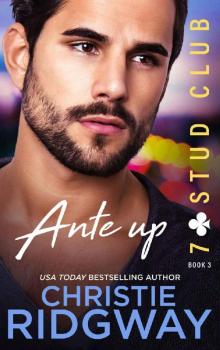 ANTE UP (7-Stud Club Book 3)
ANTE UP (7-Stud Club Book 3)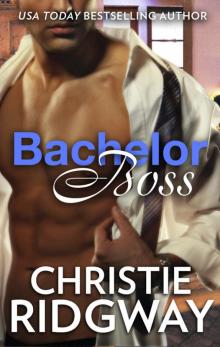 Bachelor Boss
Bachelor Boss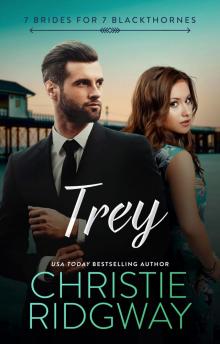 Trey
Trey Almost Paradise (Book 4)
Almost Paradise (Book 4) ALL IN (7-Stud Club Book 1)
ALL IN (7-Stud Club Book 1) My Quickie Wedding (Heartbreak Hotel Book 3)
My Quickie Wedding (Heartbreak Hotel Book 3) The Seduction (Billionaire's Beach Book 5)
The Seduction (Billionaire's Beach Book 5)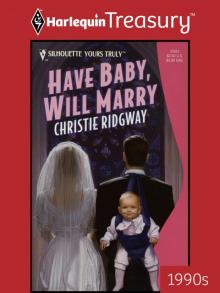 Have Baby, Will Marry
Have Baby, Will Marry Bungalow Nights (Beach House No. 9)
Bungalow Nights (Beach House No. 9) Almost Always AMAZON
Almost Always AMAZON Zane (7 Brides for 7 Soldiers Book 3)
Zane (7 Brides for 7 Soldiers Book 3) Wishful Sinful (Rock Royalty Book 5)
Wishful Sinful (Rock Royalty Book 5) SLOW PLAY (7-Stud Club Book 4)
SLOW PLAY (7-Stud Club Book 4)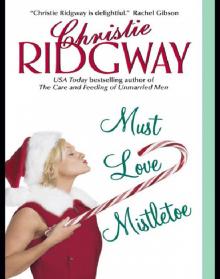 Must Love Mistletoe
Must Love Mistletoe Keep On Loving you
Keep On Loving you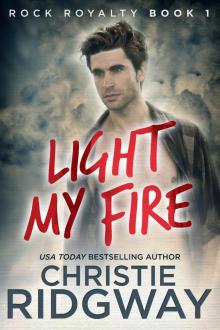 Light My Fire
Light My Fire Touch Me
Touch Me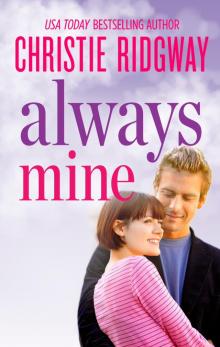 Always Mine
Always Mine Take Me Tender
Take Me Tender IN LOVE WITH HER BOSS
IN LOVE WITH HER BOSS Not Just the Nanny
Not Just the Nanny Who Do You Love (Rock Royalty Book 7)
Who Do You Love (Rock Royalty Book 7) Our Last First Kiss KOBO
Our Last First Kiss KOBO Can't Hurry Love
Can't Hurry Love Crush on You
Crush on You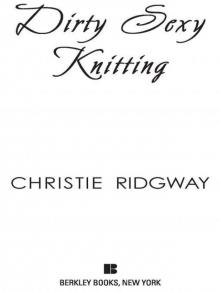 Dirty Sexy Knitting
Dirty Sexy Knitting Almost Wonderful
Almost Wonderful Beach House No. 9
Beach House No. 9 Wild Child (Rock Royalty #6)
Wild Child (Rock Royalty #6)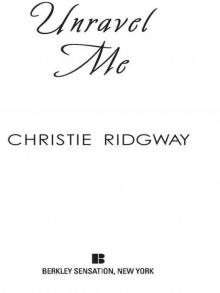 Unravel Me
Unravel Me Make Me Lose Control
Make Me Lose Control Me and Mr. Jones
Me and Mr. Jones Almost Always_Book 2
Almost Always_Book 2 Love Her Madly
Love Her Madly The Scandal (Billionaire's Beach Book 4)
The Scandal (Billionaire's Beach Book 4)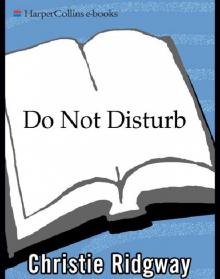 Do Not Disturb
Do Not Disturb Not Another New Year's
Not Another New Year's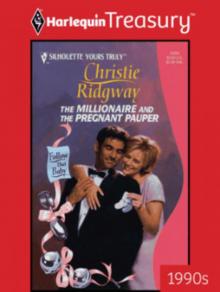 The Millionaire and the Pregnant Pauper
The Millionaire and the Pregnant Pauper The Secret (Billionaire's Beach Book 6)
The Secret (Billionaire's Beach Book 6)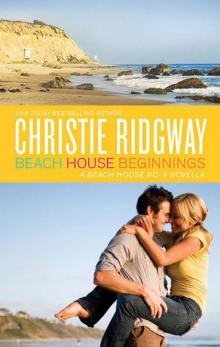 Beach House Beginnings
Beach House Beginnings RUNAWAY
RUNAWAY Take Me Forever (Billionaire's Beach Book 2)
Take Me Forever (Billionaire's Beach Book 2)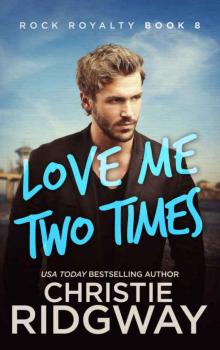 Love Me Two Times (Rock Royalty Book 8)
Love Me Two Times (Rock Royalty Book 8)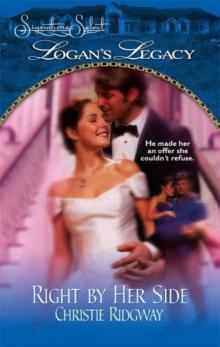 Right by Her Side
Right by Her Side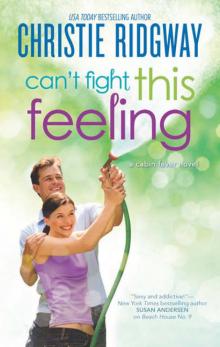 Can't Fight This Feeling (Cabin Fever)
Can't Fight This Feeling (Cabin Fever)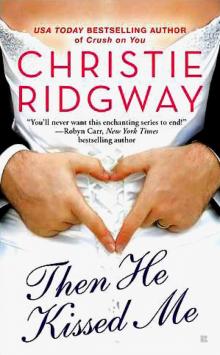 Then He Kissed Me
Then He Kissed Me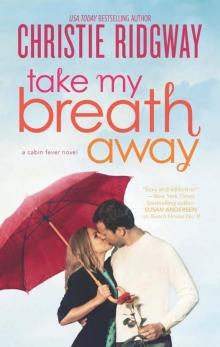 Take My Breath Away
Take My Breath Away Knox KOBO
Knox KOBO I Still Do 02 - Runaway Bride Returns!
I Still Do 02 - Runaway Bride Returns!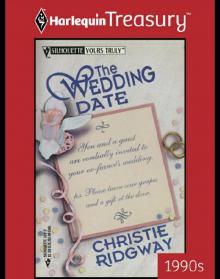 The Wedding Date
The Wedding Date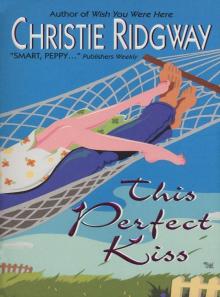 THIS PERFECT KISS
THIS PERFECT KISS Me and Mr. Jones (Heartbreak Hotel Book 2)
Me and Mr. Jones (Heartbreak Hotel Book 2)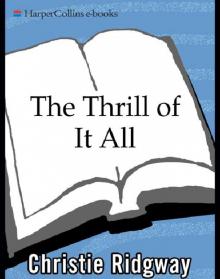 The Thrill of It All
The Thrill of It All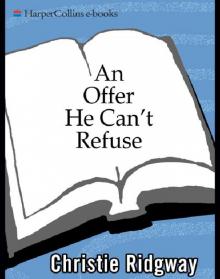 An Offer He Can't Refuse
An Offer He Can't Refuse The Love Shack
The Love Shack Runaway Bride Returns!
Runaway Bride Returns! Not Another New Year's (Holiday Duet Book 2)
Not Another New Year's (Holiday Duet Book 2) I Still Do
I Still Do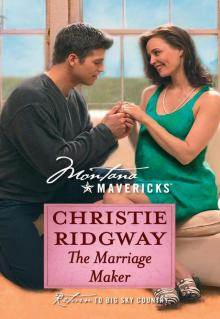 The Marriage Maker
The Marriage Maker